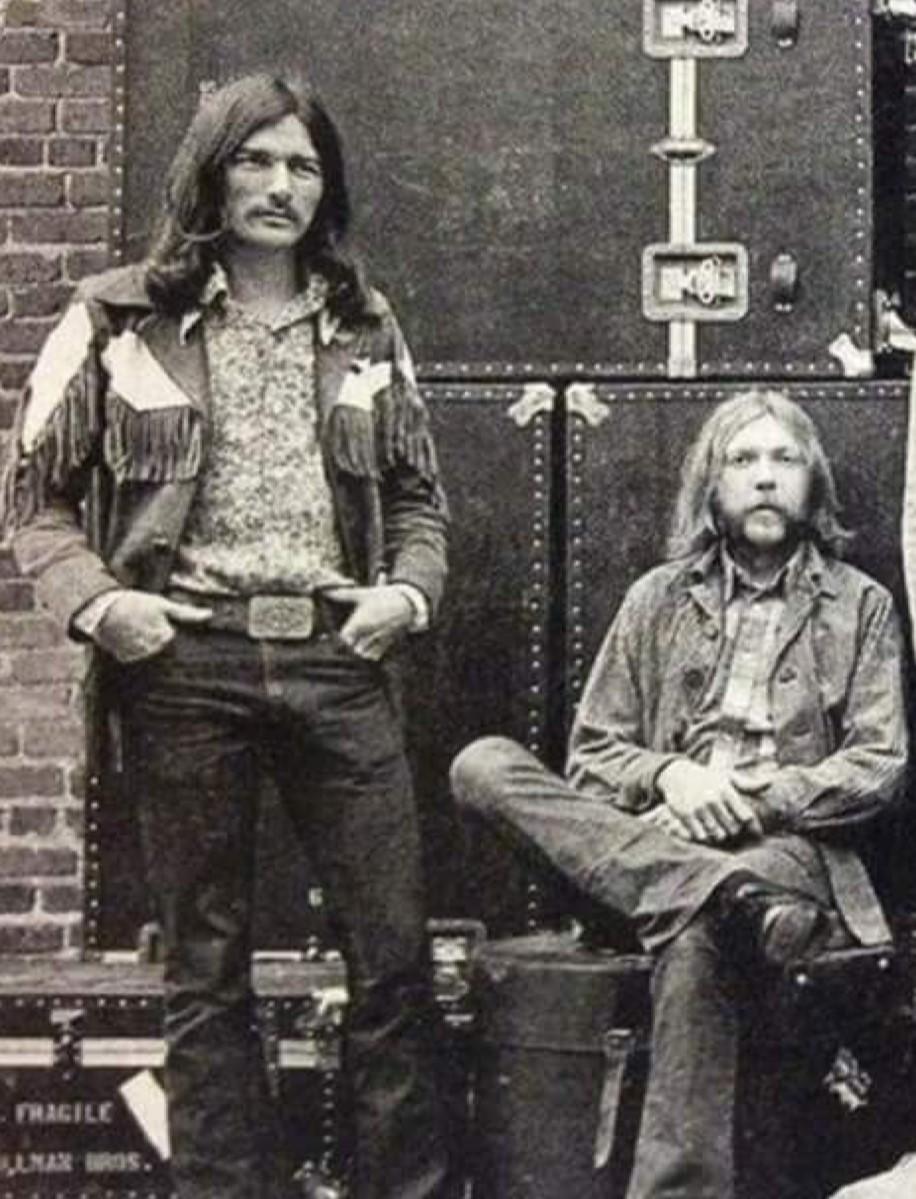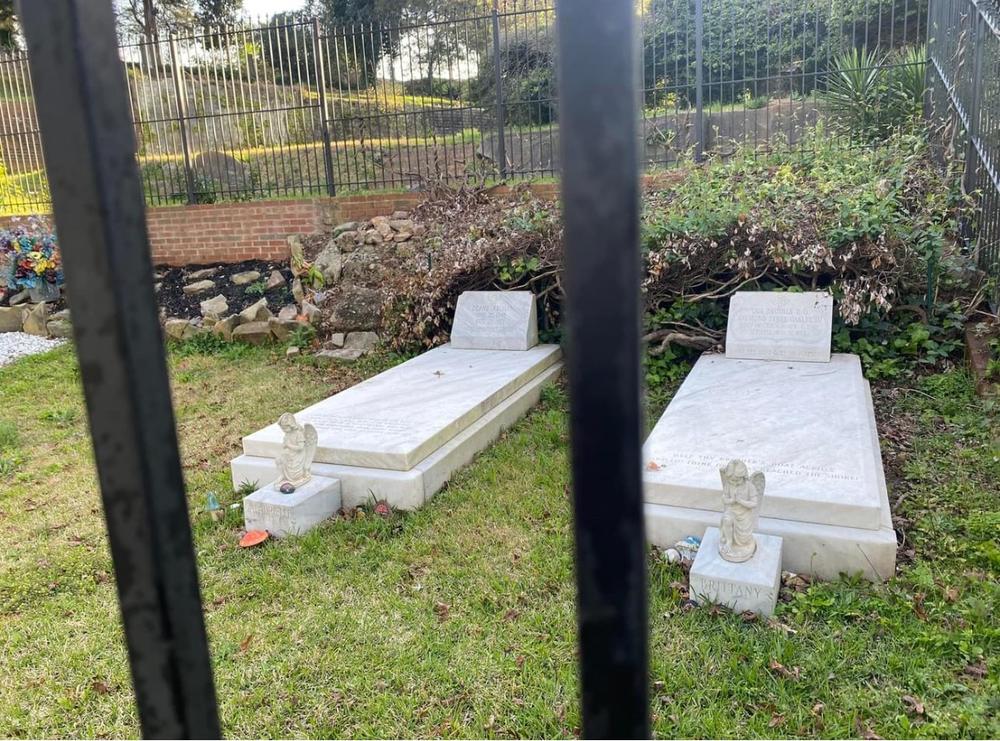
Caption
In a review of the double-album "At Filmore East," music critic Grayson Haver Currin described the two-guitar sound of Dickey Betts (left) and Duane Allman as as “vivid and exhilarating as recorded rock has ever been.”
“Tryin' to make a livin' and doin' the best I can”
There are so many stories of the ferocious, incomparable, unpredictable Dickey Betts - but where to begin?
Maybe 1600 Pennsylvania Avenue, in the late 1970s. The Carter era, where the founding member of the Allman Brothers Band was attending a jazz concert.
“I went to use the men’s room in the White House," Betts told Rolling Stone magazine, "and as I was coming out, I ran into Jimmy [President Carter] with a group of people. He said, ‘Ladies and gentlemen, this is Dickey Betts. One of the best songwriters around nowadays.’
"That just floored me.”
Or the extraordinary musical relationship with Duane Allman, giving the band their distinctive two-guitar sound. In his review of the brilliant, 1971 “At Filmore East” double-album, music critic Grayson Haver Currin described it as “as vivid and exhilarating as recorded rock has ever been.”
Bob Dylan felt the same way. Four years ago he recorded a song about the JFK assassination with the line, “Play Oscar Peterson/Play Stan Getz/ Play Blue Sky/Play Dickey Betts."
RELATED: Chuck Leavell on death of Allman Brothers bandmate Dickey Betts: 'He left an enduring legacy'
Or Dickey Betts himself, on writing “Ramblin’ Man”: "In 1969, my friend Kenny asked me how I was doing with my music and said, ‘I bet you're just tryin' to make a livin' and doin' the best you can.’ I liked how that sounded and carried the line around in my head for about three years.”
"Rambling Man," "Blue Sky," "Jessica," " In Memory of Elizabeth Reed." Betts wrote and performed all of them, among the greatest rock anthems of the century.
He died in Osprey, Florida Thursday of cancer and pulmonary failure. He was 80.

In a review of the double-album "At Filmore East," music critic Grayson Haver Currin described the two-guitar sound of Dickey Betts (left) and Duane Allman as as “vivid and exhilarating as recorded rock has ever been.”
“He was fearless. A genius. His was a gift from God and by God, he sure worked at it,” said Mike Veal, a Milledgeville, Ga. native now living in Atlanta.
He first met Betts in 1973, when he was 14. Veal has been performing in Atlanta for decades; and toured the country singing with a 72-piece band celebrating the legacy of Gregg Allman.
“Dickey had a unique personality, very different from Gregg. Kind of surly, but was nice to people, not mean," Veal said with a hearty laugh. "He was sometimes challenging.”
“Knowing Dickey, I thought he would be the first to go, given his challenges (drugs and alcohol). But he made it to 80. Only Jaimoe (Johnson) is left from the band.”
Veal attributed the Betts brilliance to his influences of country, blues, and jazz.
“He grew up in Florida listening to country, playing stringed instruments as a little boy.”
Between 1970 and 1976 Atlantan Bill Stewart was the studio drummer at Capricorn Records in Macon, and played with the band.
“In the 1970’s, I received a call from Dickey needing a drummer for a song - 'Louisiana Lou And Three Card Monty John.' Dickey said, 'come play,' offering $900, I did; and you can hear me on the album.”
Stewart’s connection to the Allmans took an unexpected twist when Gregg fell in love with another performer.
“When Gregg married Cher in the 1970’s, I moved from Macon to Los Angeles for two years...“We would run into Crosby, Stills, Nash and Young recording out there. Those guys made the Allman Brothers look like choir boys.”
Living in Southern California wasn’t easy for a musician, and Stewart still remembers calling his father for a loan. He eventually moved back to Georgia and at 77 has been playing performing gigs 61 years around the area.
“As I think about Dickey, with his death, he was a wild man. A good person. A good heart. But there were those times, when he was loaded, fighting a trash can - but never hitting anyone.”
The music will long be remembered after bouts of addiction are forgotten.
The Allman Brothers opened the door for so many other extraordinary bands in the South.
It’s only appropriate, the last time Dickey Betts performed with the Allman Brothers Band was the summer of 2000. Music Midtown inside Piedmont Park.
RELATED: Georgia Outdoors' Sharon Collins' Top 5 Singles With Georgia Connections
Now, will he join the band again in Macon or won’t he?
The ones who preceded him are all together in Macon’s Rose Hill Cemetery, and room had been previously made for Betts and the last surviving member, drummer Jaimoe Johnson.
Will Betts be buried there or will he pull one more surprise and spend eternity elsewhere?
As in life, the blazing guitarist always “kept em’ guessing.”
No confirmation yet.
“And when it's time for leavin', I hope you'll understand..."

All buried together in Macon’s Rose Hill Cemetery, room had been previously made for Dickey Betts and the last surviving member of The Allman Brothers Band, drummer Jaimoe Johnson.